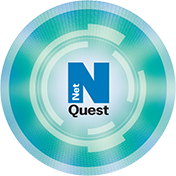Teamwork is an important aspect of most jobs. When workloads are divided equally and allocated according to each team member’s strengths and skills, tasks are completed faster and more efficiently, resulting in a significant productivity increase.
According to a study by Google, however, it’s not enough to hire the most qualified people to build a strong team. It’s also important to develop the following attributes among team members:
1. Psychological safety
According to Amy Edmonson of Harvard Business School, psychological safety is a belief that one will not be humiliated or punished for voicing questions, ideas, and concerns or owning up to mistakes.
An effective team needs an environment where people aren't afraid to openly share their thoughts and opinions. All team members should feel that they contribute to the company’s goals. If your team offers a psychologically safe environment, members won’t just become less likely to leave the company, but they will also be more likely to succeed.
Here are ways to increase the level of psychological safety in your workplace:
- Demonstrate engagement. Practice active listening by asking questions to ensure that you understand the other person’s ideas or opinions.
- Avoid pointing fingers. Instead of looking for someone to blame when something goes awry, focus on what went wrong. Let team members understand what happened and how they can avoid repeating it in the future.
- Include your team in decision-making. Regularly ask for their thoughts and feedback. Not only will this give you the different perspectives crucial to making better decisions, but it will also help team members feel more trusted and valued.
- Never tolerate negativity. If you have a team member speaking negatively about others, remind them that such behavior will not be tolerated and that everyone has to work together as a team.
- Champion your team. Assure your team that you are on their side by supporting their professional and personal development. Make your team more visible to senior leadership by drawing attention to their work and achievements.
If your team offers a psychologically safe environment, members won’t just become less likely to leave the company, but they will also be more likely to succeed.
2. Role clarity
Team members will have difficulty performing their tasks if their responsibilities are ambiguous. If their roles are clear, however, they’ll understand what the company expects of them.
Here are three crucial steps to ensuring role clarity within your team:
- Clearly define roles. Provide new employees with a detailed description of what is expected of them. For tenured staff, evaluate their responsibilities and clarify any goals associated with these.
- Create alignment. After defining roles, help your team members understand how each position helps achieve your team's objectives. Should roles and tasks change over time, make sure team members understand what these changes are. Having everyone aligned with what needs to be done will help your team be more engaged and solution-focused.
- Promote transparency. Team members also need to be transparent about their roles. This enables them to hold one another accountable and keep track of crucial deadlines.
3. Gratitude
Take the time to show appreciation for and gratitude to everyone on your team. Being recognized for their hard work will give your team a sense of accomplishment, which will help make them more invested in their jobs.
Show that you value your team by holding monthly or quarterly employee recognition days, or during team meetings, set aside a few minutes to thank the team for meeting goals and logging improvements. Phrase your praises and affirmations in a grateful way, like, “A big thanks to the team for making the client’s deadline last week.” Keep it short and sincere. Giving recognition regularly will help create a culture of gratitude in your team, which strengthens employees' relationships with one another and their managers.
You can also compose thank-you cards expressing gratitude for all the hard work your team members do. If you can, write each message by hand to make it more personal. Alternatively, you can use virtual card services if you prefer a faster and more environment-friendly option.
Your IT infrastructure should always be running optimally to ensure that your team performs as efficiently as possible. Partner with NetQuest! We will help you identify network issues and create a plan to minimize downtime while enhancing productivity and security at the same time. To see if we are the right fit for your business, download our FREE eBook today.


